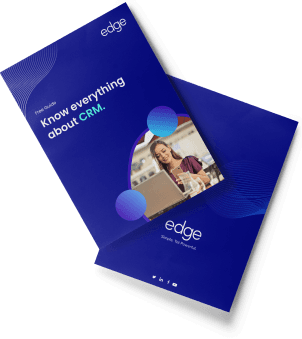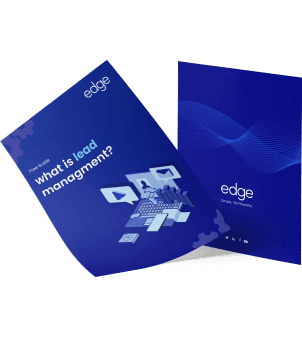Choosing the ideal CRM metrics to measure might not be difficult, but it must relate to your business strategy. Customer relationship management metrics help the organization measure its growth toward accomplishing its goals and objectives more accurately.
Concluding what the essential metrics for your organization define, ensure that the data you are evaluating is precise and accurate. Before selecting what metrics are important to your organization, you need to consider each & every metric and specify if it attends to user adoption, business performance, or consumer perception metrics.
CRM, or Customer Relationship Management software, is a significant tool for small business products. With the right type of CRM software, you can track your across-the-board sales procedures, monitor company goals & objectives, and log customer data. CRM software also provides a treasure trove of information about your own business.
Today, in this article, we have covered the points related to CRM metrics, especially for small business owners who want to understand more about how they can utilize CRM metrics for their business!
What Is Meant By CRM Metrics?
Before getting deep into knowing which CRM metrics are the best to track, it's important to know they can benefit your organization. When it comes to CRM metrics, they are the marquee data points that you can identify and follow while keeping your company's intentions in your mind. Depending on the situation of your business and overall objectives, you might have numerous key metrics that you have identified and desire to bring to light and motivate your sales team. Plus, help in explaining the overall goals of your business.
Utilizing CRM software properly can lead to higher sales and engagement with customers. Specifying the essential key metrics can enable you to drive in more customers, boost sales and develop further success for your company. It can also help you to offer context on sales as they are finalized.
In today's data-driven community, CRM metrics play an important role in designating benchmarks for a business. By determining what metrics are essential for your organization, your company can glean essential insights and understand what strategies are functioning well and what ideas need to be modified.
How To Certify That Your CRM Metrics Are Precise & Accurate?
Poor initial data results in bad metrics as well as reporting. According to several studies, poor data costs businesses roughly 550 hours and approx. $32,000 per sales representative from utilizing bad data. That is why it is important to confirm that the data you are receiving is precise and relevant to the goals & objectives of your business. Obtaining valid data is quite simple; just like reviewing the collection procedures, it ensures that the sensitive data is handled properly and is vigilant.
One of the most crucial steps you take to maintain good data is rummaging through existing consumer information. You must work with those individuals who have access to data collection procedures. Also, ensure that the consumers cannot enter your system twice, and ensure that the data being collected about each & every customer is highly accurate. The same strategy goes for your sales data. This way, you can prevent any potential errors and restrict inaccurate data collection and analysis in the future.
What Are The Types Of CRM Metrics?
When contemplating which metrics are worth pursuing, it can be beneficial to classify them into three major categories:
- User Adoption Metrics
- Business performance metrics
- Customer perception metrics
A) User Adoption Metrics
This metric concentrates on how your organization utilizes its CRM software, such as leveraging the information being assembled or how your employees utilize it.
B) Business Performance Metrics
This metric type consists of a broad range of data, including sales performance, piping, and several other sales-based metrics. However, all these metrics help measure your business's overall performance and growth in relation to the goals & objectives of your company.
C) Customer Perception Metrics
This specific metric instructs how consumers interact with your company. They tend to highlight information about the customer journey via your business's sales pipeline, whether your consumers are satisfied or not. By incorporating this data with information about internal sales procedures, companies can meet the needs of their customers more effectively.
What Are The Potential CRM Metrics?
Being sure of your company, business model, etc., one or more metrics might be worthwhile to track today. The metrics that can be pursued comprise the number of prospects, retained customers, or new customers. You can also evaluate renewal rates and close rates. Some other metrics to consider tracking are new revenue amounts, how many sales calls were made, or the number of available opportunities.
However, from a marketing perspective, you may examine how many campaigns you drive, the amount of response generated by each campaign, and the amount of revenue generated. When it comes to your website, you may observe the time an individual spends on it and how many web visitors take a step forward to purchase your products & services. On the other hand (customer service side, CRM metrics that you might track encompass how many cases your support team handles, how many deals they close, and how long it takes them to resolve them.
Here Are The Top 5 CRM Metrics You Must Track:
1. Customer Retention Costs
This is critical for any small business enterprise. Yet, measuring it against the expenses involved with driving your business can give you some major insights into how & where your business can become extra efficient. The customer retention costs must be less than the average revenue from the permanent customers. To ensure that you are measuring the appropriate cost per customer, establish the right time frame, be it monthly, quarterly, or yearly.
2. Rate Of Renewal
This specific CRM metric helps measure growth, specifically pertinent to subscription-based organizations, as it works toward tracking how many customers choose to continue utilizing your product or service once they have registered themselves. This is a significant metric for any small organization looking to understand its overall development compared to its business objectives.
3. Customer Effort Score
CES helps in measuring customer satisfaction. It goes down into the customer experience and measures overall satisfaction based on your customer effort. The customer effort score contemplated how easy or difficult your customers find dealing with your company. The CES can have numerous ranges, such as 0 to 10 or 0 to 100. For example, if a customer has to follow up constantly to obtain answers on some product or service related to your organization, your CES score will be lower.
4. Customer Churn
Customer churn is also known as customer attrition or turnover, which helps inform you about the number of customers you lose during a given period. This one is an easy & incredible metric helpful to track for your small business. By tracking this metric, you will understand why customers are not moving forward and then strategize how to retain them.
5. Net Promoter Score
This metric is helpful in measuring consumers' satisfaction with your organization. Throughout the customer journey, you can invite them to rate their experience on a scale from 1 to 10. This can help in delineating how consumers tend to perceive your company.
Summing It Up
Well, this was all about CRM metrics. We hope this article has answered all your questions related to the subject. For more such articles, visit our website now!












